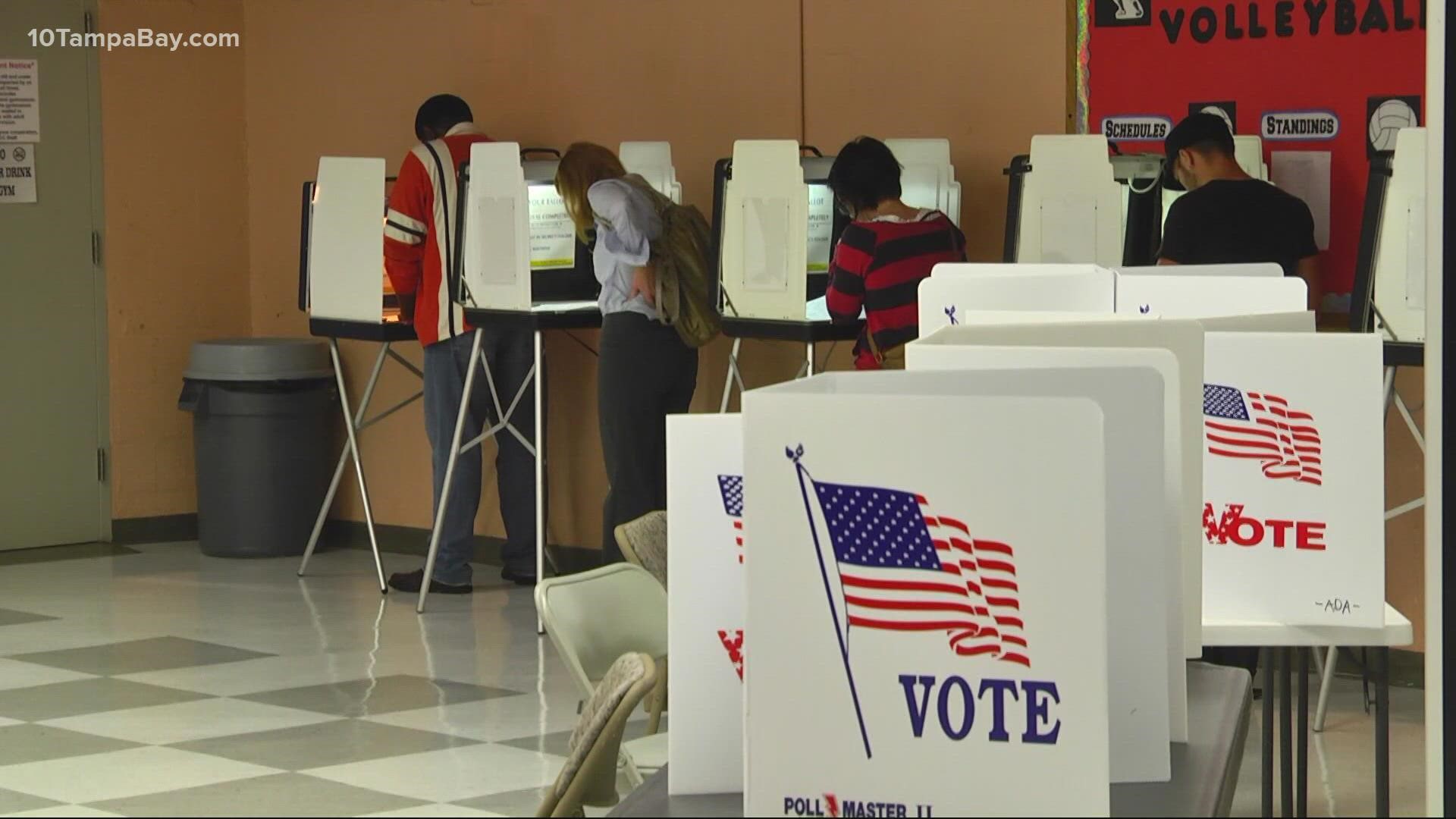TAMPA, Fla. — Leading up to this August's primary and November's election, you're sure to be targeted with more than a few mailers or advertisements. Oftentimes, this messaging does not find its way to you at random.
Once filed, with few exceptions, all voter registration information is public record including your name, address, date of birth, party affiliation, phone number, and email address.
That information, in turn, is used by political groups to target you with focused messaging or campaigns they believe you'd support.
"I think the importance [of data] is growing significantly year over year," said Justin Kemp, the Deputy Chief Data Officer for the RNC. Kemp is in Tampa this week to meet with local campaign officials and teach them how to use the RNC's expansive data set to lead effective and efficient campaigns.
According to Kemp, the RNC has been collecting data across the country since 2012, which is made available to Republican candidates for free.
"If data is the foundation that the house is built on, the RNC wants to make sure that’s the strongest foundation possible," said Kemp.
The RNC's data is built off of voter registration data, grassroots efforts, and consumer data collected online.
"We focus on building the best foundational data set possible and then allow campaigns to make the strategic decisions," said Kemp. "That’s the power of our system, because everyone’s feeding off the same data source, every campaign is helping each other with the contacts they’re making, with the work that they’re doing, so there’s no lost effort."
Florida Democrats are also leaning on voter data as they form campaign strategies. Ferguson Yacyshyn, the Director of the Florida Coordinated Campaign said in a statement:
“In 2022, the Florida Democratic Party has trained hundreds of activists and volunteers to use our state-of-the-art data systems to ensure that we are able to meet voters where they are at. Our goal is to make sure that people know that Republicans want to raise taxes and cut benefits for working families and seniors, and we are continuously building out our data systems in coordination with campaigns across the state to make sure that message is reaching people ahead of November.”
In Florida, voter data is more readily available than in other states.
However, USF Political Science Professor Ed Benton said the state presents its own set of challenges in tracking voter information because of its heavy influx of newcomers.
"You throw a large pool of new voters in there, and all of a sudden the math gets scrambled really quickly. So, as a candidate, you need to get on board and find out what is important to those people."
As candidates try to hit that moving target and spend carefully, data collection becomes more important than ever.
"You want to make sure you're reaching an audience where you get more bang for your buck," said Benton.

